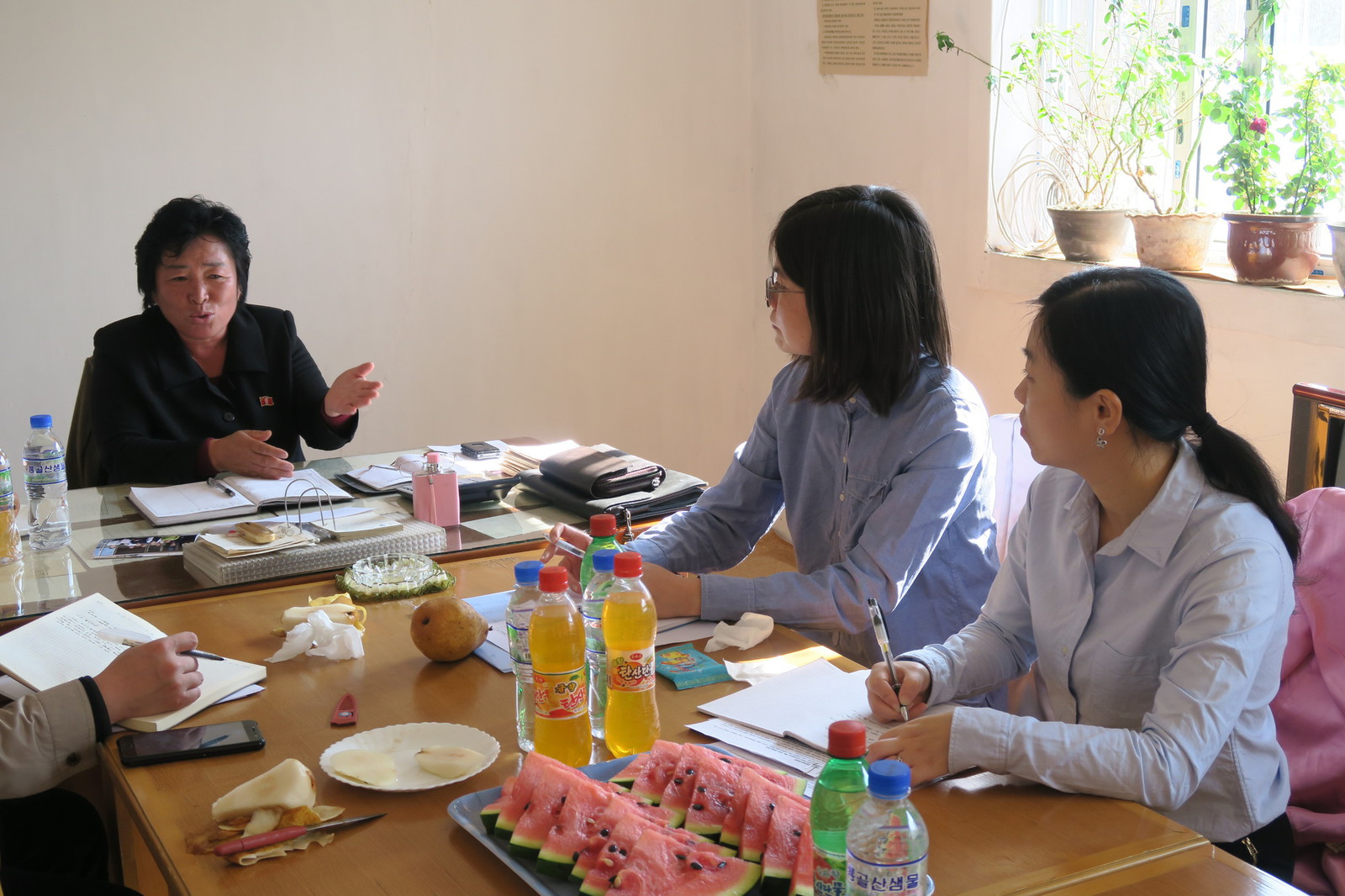
We know that diplomatic engagement helps reduce tensions and build a more peaceful world—and our latest research shows large numbers of U.S. residents agree that diplomacy can help improve relations with both North Korea and China.
According to a new poll commissioned by AFSC and conducted by Ipsos of 1,004 U.S. adults, many people believe the U.S. should work with North Korea and China on several issues where AFSC has long been leading the way.
Here are the key takeaways from our recent study and how they align with AFSC’s work:
1) Most U.S. adults believe the U.S. should work with North Korea on several issues. For example, nearly three-quarters (70%) believe the U.S. government should work with North Korea to repatriate the remains of U.S. service members left in North Korea after the end of the Korean War. Nearly two-thirds agree that the U.S. should work with North Korea to reunite Korean Americans separated from North Korean family members. Just over half (52%) agree that the U.S. should establish a diplomatic presence in North Korea.
AFSC has long advocated that the U.S. government address these issues as a means of creating a better diplomatic environment and to heal the wounds of war. See our Engaging North Korea series for more.
2) Nearly half of U.S. adults agree that we should lift sanctions, and more than half (56%) agree that the U.S. should allow privately funded charities to deliver humanitarian aid to the people of North Korea. A majority (53%) also agree that the U.S. should lift sanctions if they interfere with the delivery of humanitarian aid and COVID-19 relief.
AFSC currently co-coordinates the Lift Sanctions, Save Lives network. We have have rallied support from 55 civil society organizations to urge President Joe Biden to lift harmful sanctions as the administration conducts a review of sanctions policy.
3) 41% of U.S. adults agree that we should end the Korean War with a peace treaty, while only 24% of respondents did not agree and 35% didn’t know. This is a significant opening for advocates. It shows that a plurality of people already agree with ending the war with a treaty—and that there is significant room to persuade the many people who don’t yet know what they think.
AFSC supports many initiatives to end the Korean War like the Korea Peace Appeal. This petition calls for an end to more than 70 years of war on the Korean Peninsula and for a nuclear-free future. Lend your support here!
4) Most U.S. adults think the U.S. should engage in dialogue with China, as a key step to reducing tensions between the two countries. Nearly two-thirds (62%) agree that the U.S. should restart dialogue with China, which a recent AFSC study showed has been highly successful.
AFSC and the National Committee on American Foreign Policy recently released an audit of U.S.-China dialogue under the Obama administration. The study found that formal dialogue processes between the two countries contributed significantly to national and global security. For example, the dialogue process helped stabilize the world economy after the 2008 financial crisis, advance the Paris Climate Agreements, and manage pandemics like Ebola.
As Daniel Jasper, AFSC’s Asia Public Education and Advocacy Coordinator, shared in a recent press release, it’s “very telling that public opinion is so overwhelmingly in support of resolving long standing humanitarian issues such as reuniting families and bringing home the remains of U.S. service members. Healing the wounds of war starts and ends at the interpersonal level.” This study provides a roadmap for advocates and policymakers to move forward on these issues and build a more peaceful world.